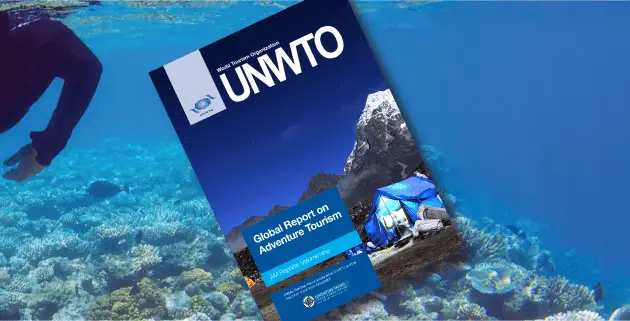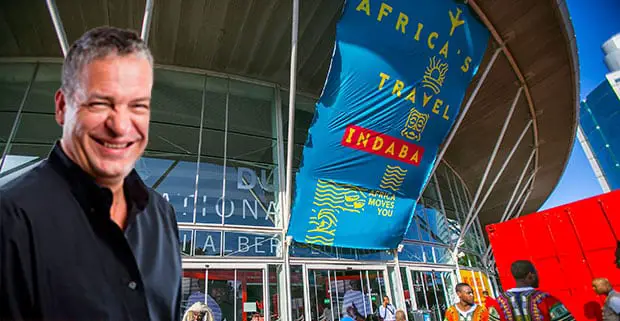Millennials Reshape Luxury Travel Through Innovation
With the ever-growing influence of Millennials on the hotel industry, luxury hotel groups have started to consider them as the future’s most affluent customer segment. Yet, a recent research carried out at Ecole hôtelière de Lausanne shows that luxury hotels, unlike their less upscale counterparts, have yet to unleash the full potential of innovation needed to attract and retain Millennials. By Dr Carlos Martin-Rios and Veronique Pelouard.
The simple fact that traditional luxury hotels and Millennials appear at odds raises a straightforward question:
How can luxury incumbents attract and maintain affluent young travellers?
Millennials are often associated with Airbnb. How about Millennials and Hilton or Ritz-Carlton or Fairmont? Does something seem a bit off? And what about the relationship between Millennials and innovation or technology? Is that an obvious pair to you? Then chances are, Millennials will make the same associations. And if true, then this might become a long-term problem.
Luxury hotels need to develop innovative strategies to become attractive to the younger, affluent generation – and younger consumers in general. Nevertheless, there is a dearth of substantive and reliable academic research on the topic. After undergoing a six-month study on the relationship between Millennials and innovation in traditional and distinctive luxury hotels, we came away with the following conclusions.
Mismatch in traditional luxury hotels
Think of a traditional upscale hotel, be it independent or part of a group. Well, they seem to face a unique challenge with regard to Millennials. A large part of our research consisted of studying Millennials who are already guests of luxury hotels. A great majority of our sample of over 200 participants consider traditional luxury hotels as non-innovative, unattractive and old-fashioned establishments.
Unattractiveness is a real issue since Millennials will be the largest segment of customers in the next few years. If traditional luxury hotels fail to attract Millennials today, they will not be able to do so tomorrow – and this will clearly reflect in their future results.
Non-innovative means traditional luxury hotels might be failing to adapt to new consumer requirements, for example by investing in solutions that are not generating the desired results. Take technology for example. Our study shows that having the latest technological hardware does not generate any real competitive advantage, as technology is considered by Millennials to be part of their “normal” life and is therefore not extraordinary.
In the eyes of Millennials, innovative solutions for traditional luxury hotels would include, for example, an ephemeral food and beverage concept or renovations to make the hotel and its operations more sustainable. Being perceived as “old-fashioned” is a real no-no for the majority of Millennials interviewed, who overwhelmingly define themselves as a generation of trendsetters/followers.
Our study highlights that traditional luxury hotels have not always assessed Millennials’ needs correctly. Providing mostly standardized practices oftentimes disguised in “personal experiences” does not seem to be the right strategy. How can something be both standardized and personal? Younger travellers want unique and customized experiences, even if it is to fulfil a hedonistic desire – share experiences on social media. Sharing is the most powerful way of communicating their emotions and peer review has never been as important as right now for these customers – hence the importance of social media. This study has also revealed that most traditional luxury hotels fail to capitalize on the potential of these means of communication and view them as an obligation rather than an opportunity.
The potential for distinctive luxury
Now let’s turn to the distinctive, boutique, unique upscale hotels. Unlike traditional luxury hotels, many distinctive luxury hotels have developed innovative strategies to get away from hotel standards and focus on design and uniqueness. We have grouped these innovations into three key elements:
- Human capital: Truly investing in the latest human resource strategies pays off. These hotels develop work systems that stress friendliness, accessibility and availability instead of distant formality. The goal is to allow employees to spend more time engaging with guests and providing personalized services.
- Organizational design: The goal is to put in place ‘boundaryless’ hotels — a unique design that embraces the local culture — that foster interaction between young travellers and locals. Fuzzy boundaries between the hotel and the local community delve the hotel into a public space where exclusive events and activities related to the local culture take place and where trendy, local food and beverage concepts and pop-up concepts can emerge.
- Unique service: Innovative technological and organizational innovations are in place with the goal of drifting away from SOPs. Instead, service revolves around ultra-personalization with an offer of a wide variety of exclusive, non-standard, local products, refined goods and services that show true taste and respect.
Yet, these establishments also face challenges in attracting Millennials. In our study, we also carried out in-depth interviews with senior management from top luxury hotel groups. Results from interviews confirmed that many distinctive luxury hotels grasp Millennials’ needs and desires better than their traditional luxury counterparts but still struggle with driving innovation, attracting and retaining talent, and implementing work practices that move away from SOPs and into personalization.
Personalized and unconventional experiences
Luxury can be defined in several ways and while luxury hotels promise utmost personalization of stay, young guests increasingly perceive standardized services – where the “wow” factor is progressively diluted – in a negative light. When asked to define what constitutes a ‘luxury hotel’, Millennials pointed toward “an amazing experience” that had a meaningful impact on them. There were few instances in which they related luxury with services and quality, which is a strong suit of many luxury hotels.
Our study suggests that Millennials are less likely to buy a standard luxury service than an everlasting experience. Luxury clearly has not lost its lustre with younger affluent travellers; but traditional luxury brands are, in fact, considered less desirable than distinctive luxury hotels.
With increasing competition between luxury hotels, attracting Millennials through innovation and genuinely desirable experiences could open the door to differentiation and better guest retention. The fundamental argument that lies at the base of this discussion is that there is a risk for luxury hotels to “miss the train” should they choose to maintain their traditional style of operation while Millennials are reframing the whole definition of luxury and have specific needs that most luxury hotels are still ill-prepared to meet.
How can they overcome this situation? By generating more, better and faster innovation. Indeed, by investing financial, organizational and human resources in smart and selected innovations, hotels will pave the way to establishing a loyal customer relationship between themselves and Millennials.
About the authors: Dr Carlos Martin-Rios is tan Associate Professor of Human Resources and Veronique Pelouard is the Student Ambassador at Ecole hôtelière de Lausanne (EHL).





